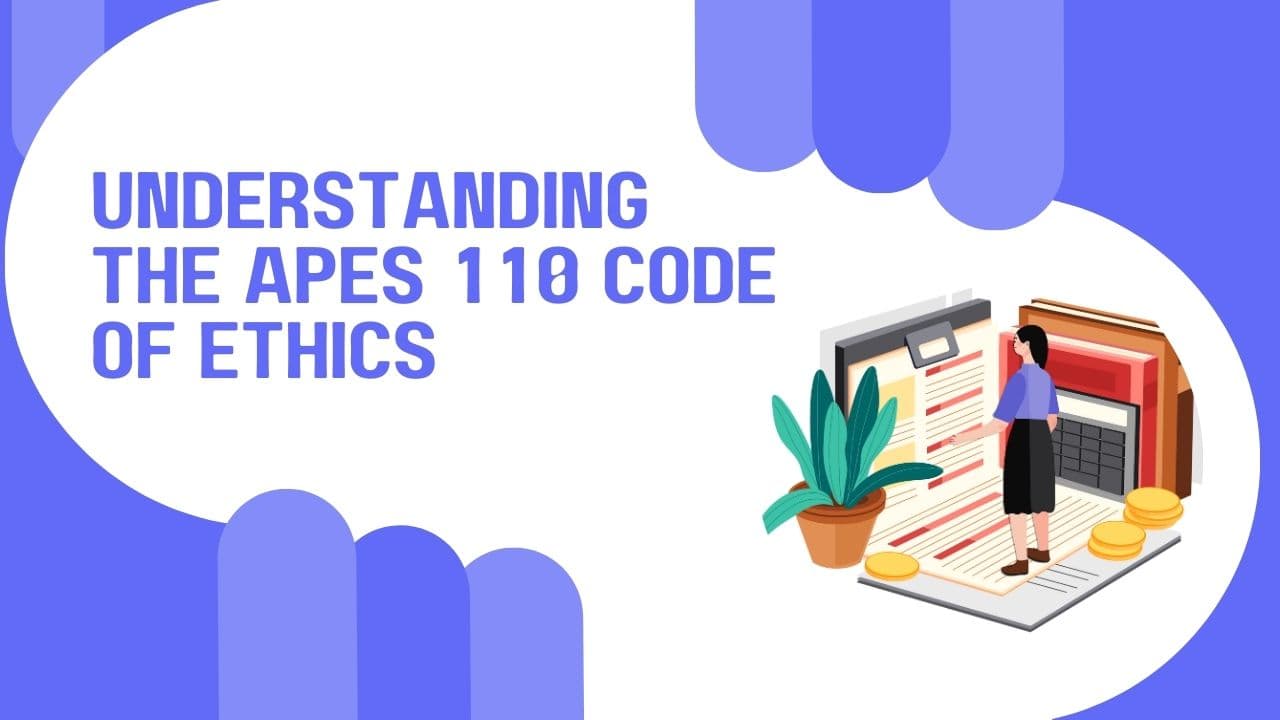Ethical dilemmas don't wait for convenient moments. When a client pressures you to bend the rules or a personal relationship creates a conflict of interest, you need more than good intentions—you need a clear framework. The Accounting Professional and Ethical Standards 110 Code of Ethics for Professional Accountants (APES 110) provides that framework, and understanding it isn't just about compliance—it's about protecting your career and reputation.
This article explores the fundamental principles of APES 110, equipping Australian accounting professionals with the knowledge necessary not only to comply with the rules but also to integrate ethical thinking into their daily practice. We'll also explore how this code ties directly to your Continuing Professional Development (CPD), and what training options are available to help you meet those obligations.
The Five Pillars That Guide Every Decision
APES 110 stands on five fundamental principles that work together to guide professional accountants through complex situations:
-
Integrity means being honest and straightforward in all professional relationships. When a client asks you to make a "small adjustment" to make their numbers look better, integrity demands you refuse—no matter how minor it seems.
-
Objectivity requires you to resist bias and outside pressure. Your professional judgment must remain independent, even when clients offer incentives or apply pressure to influence your decisions.
-
Professional Competence and Due Care demands you maintain current knowledge and skills. This is why your CPD requirements include ethics hours—the profession evolves, and so must your expertise.
A great course to meet this requirement is Ethics for Members for Chartered Accountants Australia and New Zealand (CA ANZ) and New Zealand Institute of Chartered Accountants (NZICA). It's specifically designed for Chartered Accountants and helps satisfy updated CA ANZ ethics CPD expectations.
- Confidentiality governs how you handle sensitive information acquired through professional relationships. Client data stays protected, period.
-
Professional Behaviour means following laws and regulations while avoiding conduct that damages the profession's reputation. Every action reflects not just on you, but on all accountants.
These principles aren't separate rules—they work together. When facing tough decisions, use them as your compass to find the ethical path forward.
The Conflict That Catches Most Accountants Off Guard
Picture this: You're a senior accountant at a mid-sized firm. A new high-profile client's Chief Executive Officer (CEO) is your close friend. They suggest you lead their audit team, promising to make the process "easy" and hinting at substantial future consulting work for your firm.
This creates what the code refers to as familiarity and self-interest threats, which are also outlined in the International Ethics Standards Board for Accountants (IESBA) Code. Your friendship clouds your objectivity, and the promise of future work creates financial pressure to go easy on the audit.
APES 110 requires a structured approach:
-
Identify the threat: Recognise that the conflict exists and could impair your judgment.
-
Evaluate its significance: Assess how seriously it could affect your objectivity and the audit quality.
-
Apply safeguards: Take concrete steps to eliminate or reduce the threat to an acceptable level.
In this case, safeguards might include immediate disclosure to senior partners, assigning a neutral audit team, and arranging an independent review.
To build these skills, consider the Micro-Credential: Ethical Decision-Making. This course offers practical, scenario-based training on applying APES 110 in everyday ethical dilemmas.
Making Ethics Work in Your Daily Practice
The APES 110 Code isn’t just for misconduct prevention—it’s for navigating the complexity of modern accounting, including the use of automation, artificial intelligence (AI), and increasing client demands.
The Accounting Professional and Ethical Standards Board (APESB) mandates ethics hours as part of your annual CPD requirements. Similarly, Chartered Accountants Australia and New Zealand (CA ANZ) now requires at least 6 hours of verifiable ethics training in every three-year CPD cycle (increased from 2 hours in July 2024).
Research by CPA Australia and APESB indicates that a significant number of complaints against accountants stem from failures in professional competence and due care—often linked to outdated knowledge and a lack of structured ethical thinking. These findings are consistent with the International Federation of Accountants (IFAC) Global SMP Survey, which identified ethics and compliance as a top global challenge for firms.
New technologies such as AI introduce additional complexity. For instance, when an AI tool flags suspicious transactions, professional accountants still have a responsibility to evaluate the data, assess risks, and ensure confidentiality.
The Professional Ethics: The AI Alignment Problem course helps you prepare for these evolving issues by connecting AI-related risks with the ethical expectations set out in APES 110.
Conclusion
Ethical leadership is essential for long-term success. Strong ethics enhance your reputation, increase client trust, and reduce professional liability.
Every decision you make either builds or erodes trust—with clients, colleagues, and regulators. APES 110 provides the framework, but you must consistently apply it.
Need a more flexible way to stay compliant with your CPD obligations? The Unlimited CPD Pass gives you access to an evolving library of ethics-focused training modules—ideal for staying current and confident in your professional conduct.
